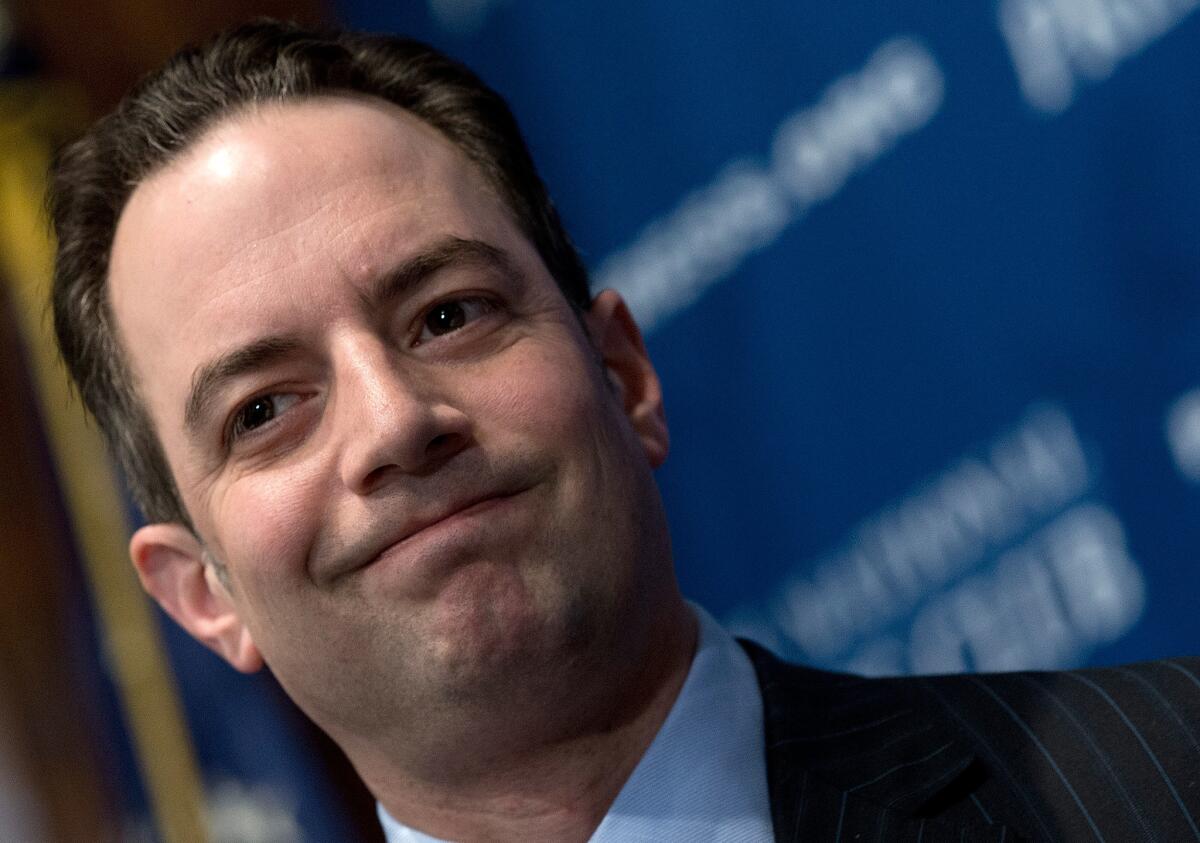GOP rehab good start, but misdiagnoses some problems

There is much that is brutal and bracing in the 12-step rehab program the ailing Republican Party has enrolled itself in.
“Public perception of the party is at record lows,” wrote the veteran political practitioners summoned by GOP leaders to offer their diagnosis in a report released Monday.
“Young voters are increasingly rolling their eyes at what the party represents, and many minorities wrongly think that Republicans do not like them or want them in the country. When someone rolls their eyes at us, they are not likely to open their ears to us.”
Put more succinctly, a great number of voters consider the Republican Party “too white, too right and too uptight,” as Democratic strategist David Townsend recently told The Times’ George Skelton. (You can accuse Townsend of partisanship and ignore what he has to say, just as you can seek another doctor for a fourth or fifth opinion you like better. But there are plenty of Republicans who agree with Townsend.)
Recognizing a problem is, of course, the first step toward recovery. But it is only the first step, and often an easy one compared to the hard work and painful choices that follow.
The GOP faces plenty of hurdles as it seeks to rebuild and rebrand, minority outreach being just one of them. Yes, it is important to reach out -- especially given the rapid growth of two voter groups, Latinos and Asian Americans, who rejected Mitt Romney with thundering clarity. Just showing up in those communities, rather than writing them off as part of Romney’s expendable 47%, is a start.
A presence is no substitute for policy, however, and there the recovery program grows difficult; witness, for instance, the passions surrounding immigration, as many in the GOP move away -- or try to -- from the party’s inflammatory rhetoric and its support for an enforcement-only approach. (Immigration was the only policy matter explicitly addressed in the Republican report.)
That sort of robust discussion is a healthy thing, as tough as it may be.
But there is one part of the party’s self-diagnosis that seems like pure political quackery: the notion that a surfeit of debates and a prolonged nominating process undermined Romney and the GOP “brand,” as it has come to be called.
There are many reasons to criticize the nearly two dozen debates that studded the 2012 nominating fight. The sponsors turned them into shameless self-promotions. They started too early (long before most voters were paying attention) and they drove a gyrating narrative (Michele Bachmann breaks out! Herman Cain takes the lead!) of surpassing silliness.
Coming one atop another, the prolonged sessions proved numbingly repetitive, with candidates reading off the same dog-eared scripts, parrying the same thrusts, offering the same canned platitudes over and over, the only difference being the arrangement of their lecterns onstage.
True, Romney said things during the debates that badly damaged him in the general election. (Self-deportation, anyone?) But faulting the debates for his loss is like criticizing a rooster’s racket for making the sun rise. It was the policies he enunciated that caused the GOP nominee to lose in November, not the forums in which they were stated.
If anything, the process made Romney a better and sharper candidate, which served him well in Denver against a diffident President Obama, who sleepwalked through their first general-election debate.
It is worth noting that Obama went through a similar steeplechase in the 2008 primaries, facing a much stronger debate field than the menagerie that shared a stage with Romney four years later. Obama, too, became a better, more substantive candidate, and no one was talking in 2009 about too many Democratic face-offs.
Which speaks to an obvious but important point: When you’re winning, everything is right with the world (or at least that portion of it). The opposite holds true when you’re on the losing end.
Another recommendation from Monday’s remedial report called for a more truncated primary process, wrapping things up sooner to better focus on the general election campaign. Which is precisely what Republicans, unhappy with their 2008 nominee, John McCain, sought to avoid by adopting a 2012 calendar aimed at a more drawn-out, deliberative process.
Never mind all that.
With Monday’s self-critique, the GOP has shown it is serious about facing its maladies and healing itself -- at least up to a point. But misdiagnosing the problem, or focusing on the wrong symptoms, won’t make the patient any better in the long term. Even if it is soothing to think so.
On Twitter: @markzbarabak
More to Read
Get the L.A. Times Politics newsletter
Deeply reported insights into legislation, politics and policy from Sacramento, Washington and beyond. In your inbox three times per week.
You may occasionally receive promotional content from the Los Angeles Times.











